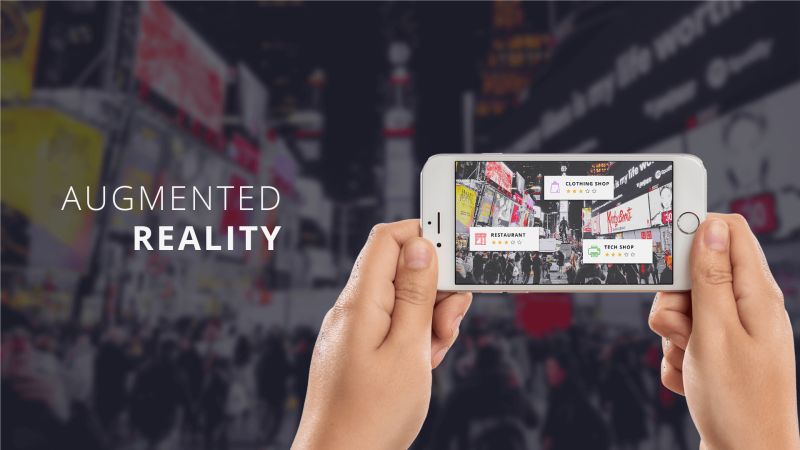How Augmented Reality Will Impact Your Life

How Augmented Reality Will Impact Your Life
You’ll probably recall that Pokémon Go was extremely popular back in 2016. With it, players were able to interact with digital Pokémon in real-world environments. This was all made possible through augmented reality.
It’s expected that this popularity will continue and that augmented reality will, in some way or another, become part of our everyday lives. But what exactly is augmented reality and what are some of its benefits?
What Is Augmented Reality?
You could formulate a formal definition for augmented reality (AR) as an interactive experience where digital, computer-generated information enhances objects in the real world through a variety of visual, auditory, and other sensory modalities.
So, as the name suggests, AR augments the way you experience the world around you. Typically, this happens when you use your phone to view the environment and your surroundings, and an AR application supplements the information you see.
This could, for instance, include seeing how different products look in various colors, getting real-time directions, or seeing labels that give more information about a specific product.
Now, AR, in a sense, may sound somewhat similar to virtual reality (VR). There is, however, a significant difference. While AR supplements or augments the real-world information you see, VR creates a fully immersive experience in a digital world where you can interact with computer-generated people and objects.
The Benefits of Augmented Reality
Now that we’ve seen what augmented reality is, it’s easy to see the possibilities it presents. AR allows you to:
- Create unique, digital customer experiences that require no special hardware and let them market better, sell more, and generate more revenue.
- Eliminate cognitive overload by presenting information in smaller parts that are easier to digest which, in turn, helps users make better, quicker decisions.
- Create more brand awareness, build lasting relationships with their customers, and increase loyalty which all increase profitability.
- Stand out from the crowd and get a competitive edge in a market filled with similar products with the same pricing and comparable marketing strategies.
When you consider the above, it’s easy to see why, as AR becomes more prevalent and popular, you’ll find it in navigation applications, gaming, entertainment platforms, travel and lifestyle applications, food and cooking apps, and more.
Some of its most promising uses, however, will be in the health and education industries where it can improve everything from the diagnosis and treatment of medical conditions to making it easier to learn and understand complex subjects and concepts.
It’s not all good news, though, and there are some drawbacks to AR. For example, in some cases, AR applications can be slow which negates the benefit of providing an engaging user experience.